Reha Virus Removal Guide (+Decrypt .reha files)
Reha – Ransomware
Reha is a harmful software application functioning as common ransomware. Michael Gillespie, the popular virus researcher, very first discovered this new name in the DJVU ransomware family.
Reha was developed for the sole purpose to encrypt all popular file types. Realistically, as soon as the file encryption is successfully achieved, the users are not able to get access to them. Reha virus includes its own “.reha” to all the encrypted files. For example, the file “price_list.xls”, once modified by Reha, will be entitled as “price_list.xls.reha”. When the encryption is achieved, Reha puts its own unique text file (_readme.txt) into all the folders that keep the encrypted files.
The message mentioned by text file requesting the random os extremely similar to the notifications given by other ransomware risks coming from the DJVU family. The warning generally shows that the data has been secured and the only service to get access to it is to use a distinct standalone key. Regretfully, this declaration is definitely real.
The technique to secure the files utilized by Reha is not entirely looked into. Nevertheless, there is no doubt that each computer owner may be provided an unique decryption key, which is absolutely distinct. It is very difficult to recuperate the data without the proper key in place.
“Don’t worry, you can return all your files!”, from text file message:
One more peculiarity of the Reha infection is that the users are not able to get access to the key. The decrypting key is hosted on a special server under the complete control by the scoundrels who have actually introduced the Reha virus into the internet. In order to get the key and bring back the crucial information, the users are informed to get in touch with the scams via e-mail or by telegram and to pay the ransom in the quantity of $980.
The message likewise states that the people must contact the Reha authors within 72 hours upon the moment of the data file encryption. The alert shows that by doing so individuals will get a 50% discount, therefore, the ransom quantity falls to $490.
Reha crypted your information, however, it may not be the only threat on your computer. Plus, the ransomware may be concealed deep in the system. To find and delete the risk totally, we advise you to describe the aid of GridinSoft Anti-Malware .
Download GridinSoft Anti-Malware
GridinSoft Anti-Malware Review, How to get free trial?, EULA, and Privacy Policy.
No matter what the amount of the ransom is, we strongly advise that you do not pay the ransom. There is no guarantee that these online crooks will keep their pledges, so they may not care at all what the victims feel about the file encryption, even when the quantity of the ransom is received into their accounts. Thus, paying ransom typically does not result in a successful recovery. So, the users might simply lose their money for nothing.
Likewise, we prompt you not to call the scams as they advise. Do not transfer loan into their wallets. There are no applications that might split the Reha ransomware or restore the data at no cost. For that reason, the only proper decision is to bring back the information from possible backups (if available).
Virus Summary
| Name | Reha Ransomware |
| File Extension | reha |
| Type | Ransomware |
| Family | DJVU |
| Short Description | The ransomware encrypts all the data stored on your system and requires a ransom to be paid on your part supposedly to recover your important files. |
| Symptoms | File encryption by the ransomware is performed by means of the AES-256 algorithm (CFB mode) encryption algorithm. Once the encryption is completed, the ransomware adds its special .reha extension to all the files modified by it. |
| Distribution Method | Adware bundles and software cracks |
| Similar Infections | Topi, Nosu, Kodc |
| Removal Tool | GridinSoft Anti-Malware |
Do not forget that the Internet is now filled with infections similar to the Reha virus. For example, this specific threat is essentially similar to Brusaf and other ransomware-type infections. These damaging energies have been developed in order to secure the crucial data and express the demand for the users to pay the ransom. All these infections use the identical algorithm to produce the specific key for successful files decryption.
Unless the Reha ransomware is still under the development procedure or has got some concealed bugs, it is not possible to bring back the data manually. Thus, the only working option to prevent the loss of your crucial information is to regularly maintain up-to-date backups of all your crucial documents.
Another crucial piece of suggestions is to save the backups on unique storage not connected to your primary device. For instance, you may store it on the USB Flash Drive, or some external hard disk, or by using the cloud data storage services. Keeping the backups on your routine drive is very dangerous, given that the backup may also be encrypted by the Reha .
Leakages for the Reha ransomware attack.
Reha utilizes numerous courses to infiltrate the vulnerable computer systems. It is not certain what specific technique was used in your case, however, the invasion may occur via the following channels:
- bundling with third-party programs, primarily freeware;
- spam e-mails from the unknown senders;
- websites supplying complimentary hosting;
- P2P (peer-to-peer) torrent downloads.
There are times when the Reha ransomware might disguise itself as some genuine application, for instance, through the deceptive notifies demanding setup of some software application update. This is the most common trick used by the scams to inject the Reha virus files into the system. In this manner users partly take part in its setup, without plainly understanding the risk.
In addition, the frauds may send unsolicited spam email with challenging informs motivating individuals to open dubious attachments or click some download links, for example, those motivating individuals to open particular photos, text files, tax files and other info.
No doubt, opening these files or clicking on the malicious links might basically damage the system. Fake Acrobat Reader update notices may result in the Reha ransomware infiltration. Likewise, downloading the broken software application may in addition include the ransomware installer. The last however not the least, setup of Reha may take place through some Trojan horses that may be set up stealthily into the system and without the user’s direct permission or even consent.
Avoiding the Reha injection.
Obviously, there is no outright warranty that your computer system will be always free of any malware attacks, however, we wish to share some beneficial tips with you to make it more secure. Ensure to pay very close attention while searching the web and particularly while downloading cost-free programs. Do not open any suspicious e-mail attachments, particularly if the sender is not known to you.
Do not forget that certain freeware installer may likewise contain some other extra apps in the package. These additional applications may be extremely destructive. It is of utmost significance to keep your anti-virus software and your os in general to be always correctly upgraded.
It is rather rational that downloading pirated apps is unlawful, nevertheless, additionally, such unapproved software application usage might likewise bring severe damage to your computer. Hence, do not download any cracked programs. Plus, the fact that your current anti-virus did not safeguard the system from the Reha ransomware is a good factor for you to reassess your options and switch to another program that can render the safeguarding functions on a better level.
Below please find the quotation from the Reha text file:
ATTENTION! Don't worry, you can return all your files! All your files like photos, databases, documents and other important are encrypted with strongest encryption and unique key. The only method of recovering files is to purchase decrypt tool and unique key for you. This software will decrypt all your encrypted files. What guarantees you have? You can send one of your encrypted file from your PC and we decrypt it for free. But we can decrypt only 1 file for free. File must not contain valuable information. You can get and look video overview decrypt tool: https://we.tl/t-2P5WrE5b9f Price of private key and decrypt software is $980. Discount 50% available if you contact us first 72 hours, that's price for you is $490. Please note that you'll never restore your data without payment. Check your e-mail "Spam" or "Junk" folder if you don't get answer more than 6 hours. To get this software you need write on our e-mail: [email protected] Reserve e-mail address to contact us: [email protected] Our Telegram account: @datarestore
Screenshot of files with “.reha” extension added by the virus:”
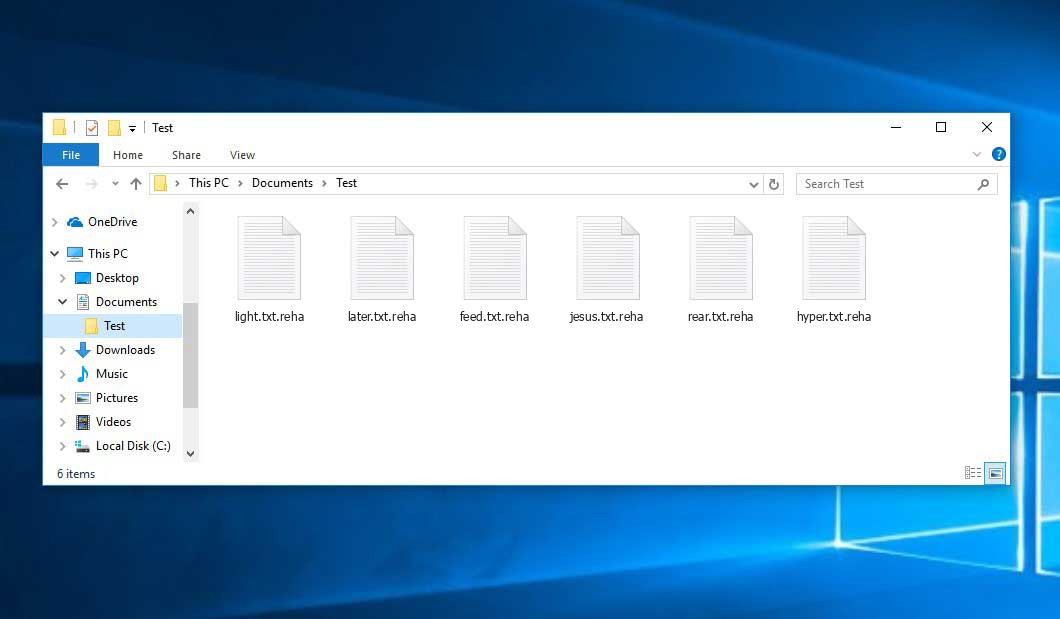
Use GridinSoft Anti-Malware to remove Reha ransomware from your computer
1.Download GridinSoft Anti-Malware.
You can download GridinSoft Anti-Malware by clicking the button below:
2. Double-click on the setup file.
When setup file has finished downloading, double-click on the setup-antimalware-ag.exe file to install GridinSoft Anti-Malware on your computer.
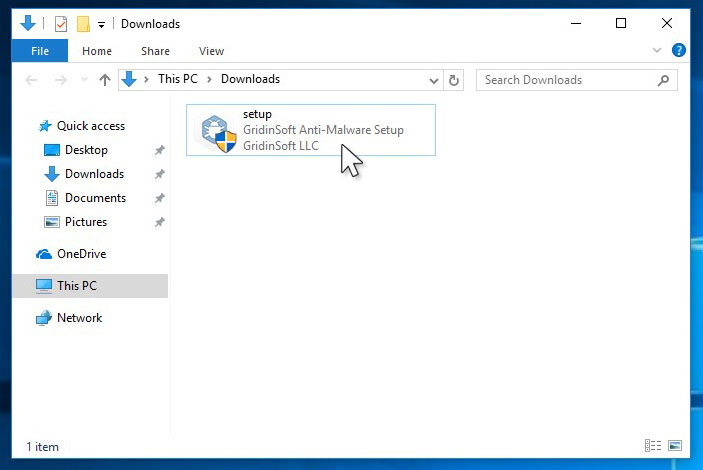
An User Account Control asking you about to allow GridinSoft Anti-Malware to make changes to your device. So, you should click “Yes” to continue with the installation.
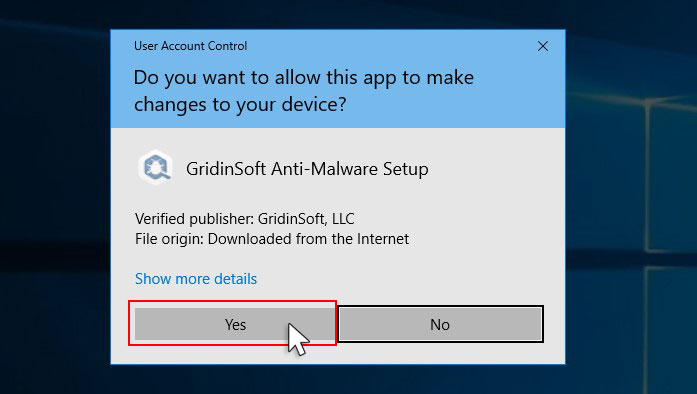
3. Press Install button for run GridinSoft Anti-Malware.
3.Once installed, GridinSoft Anti-Malware will automatically run.
4. Wait for the GridinSoft Anti-Malware scan to complete.
GridinSoft Anti-Malware will automatically start scanning your computer for Win Speedup 2018 and other malicious programs. This process can take a 20-30 minutes, so we suggest you periodically check on the status of the scan process.
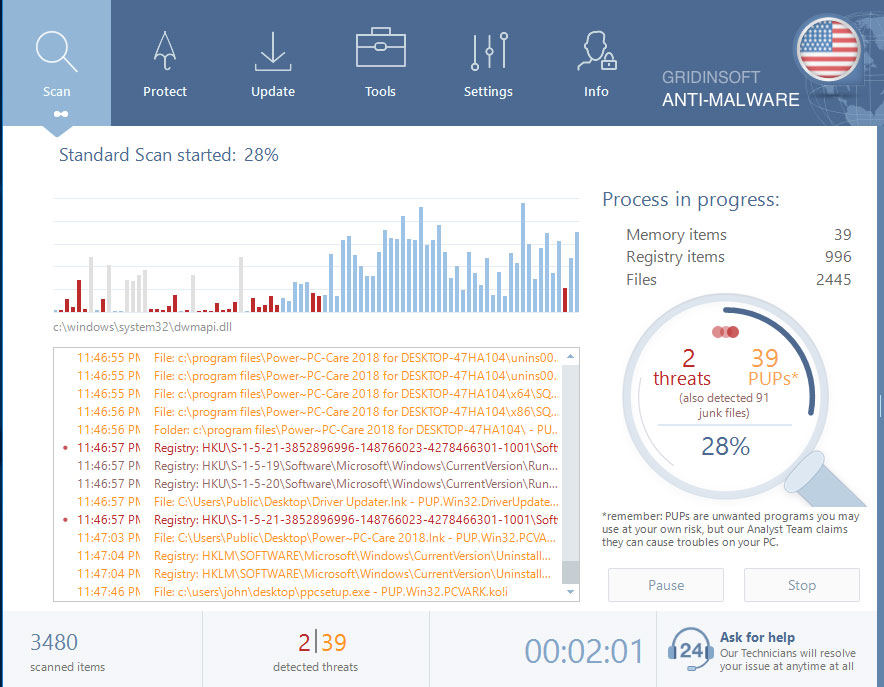
5. Click on “Clean Now”.
When the scan has completed, you will see the list of infections that GridinSoft Anti-Malware has detected. To remove them click on the “Clean Now” button in right corner.
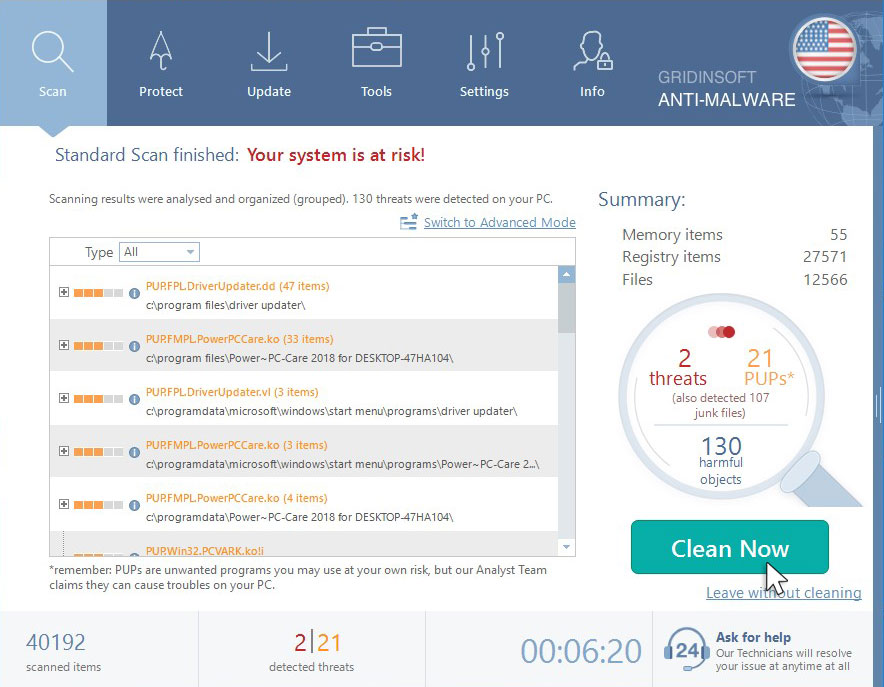

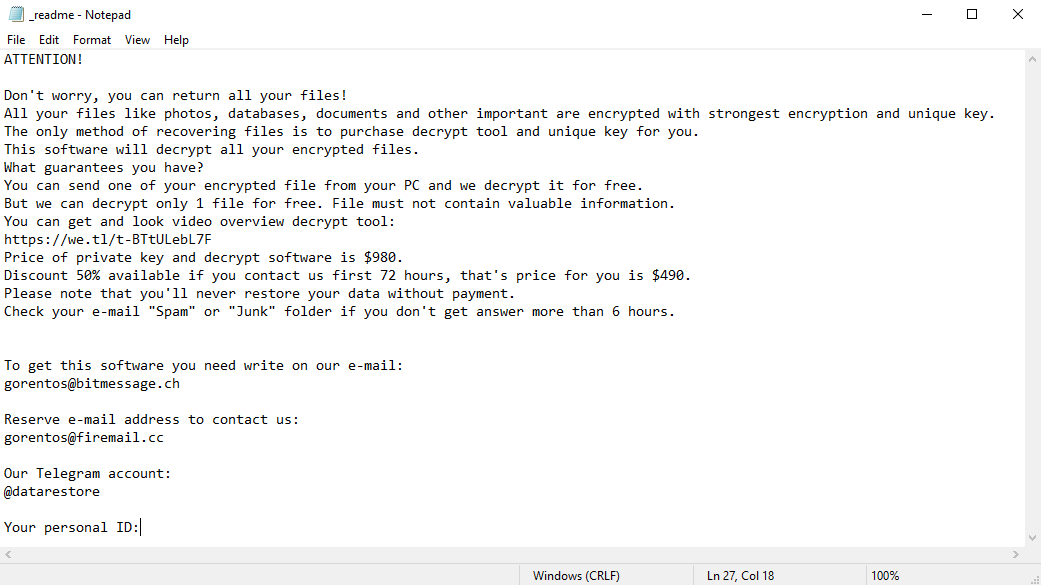
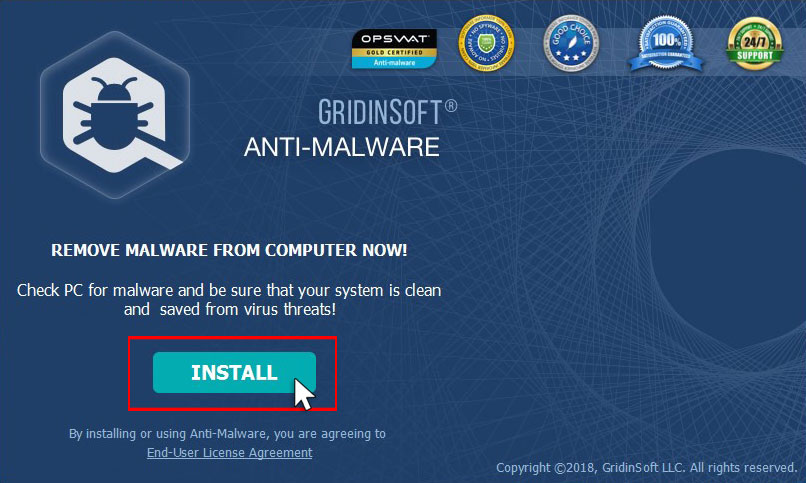
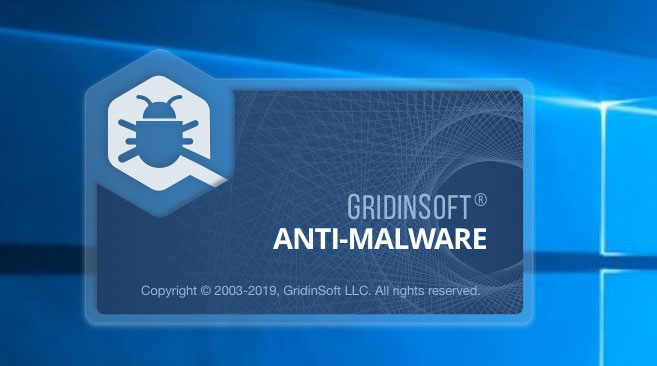

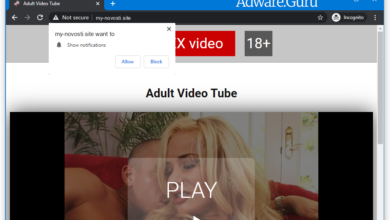
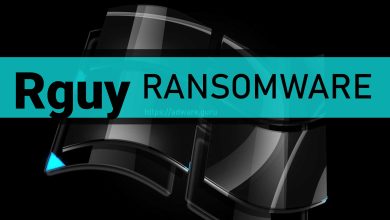

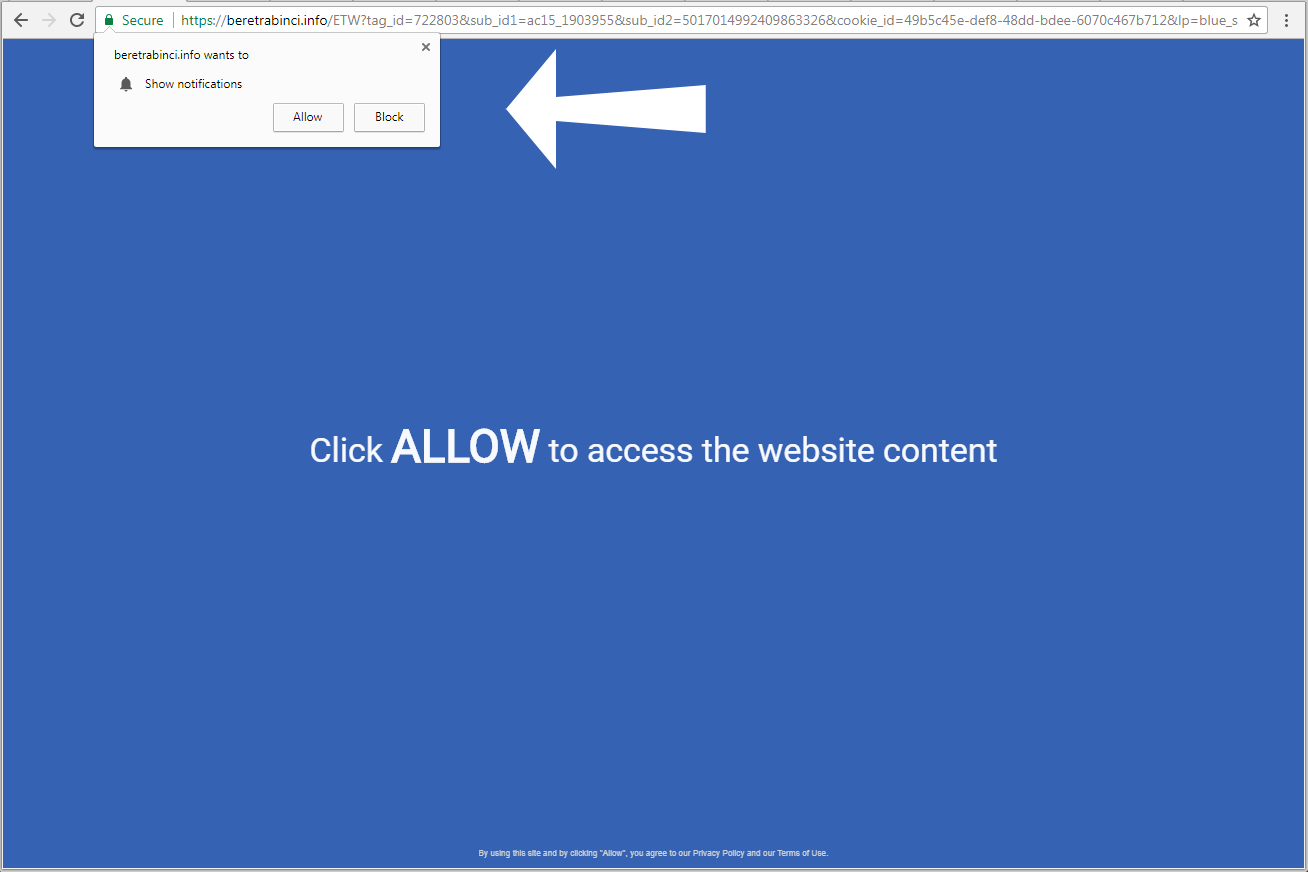
One Comment